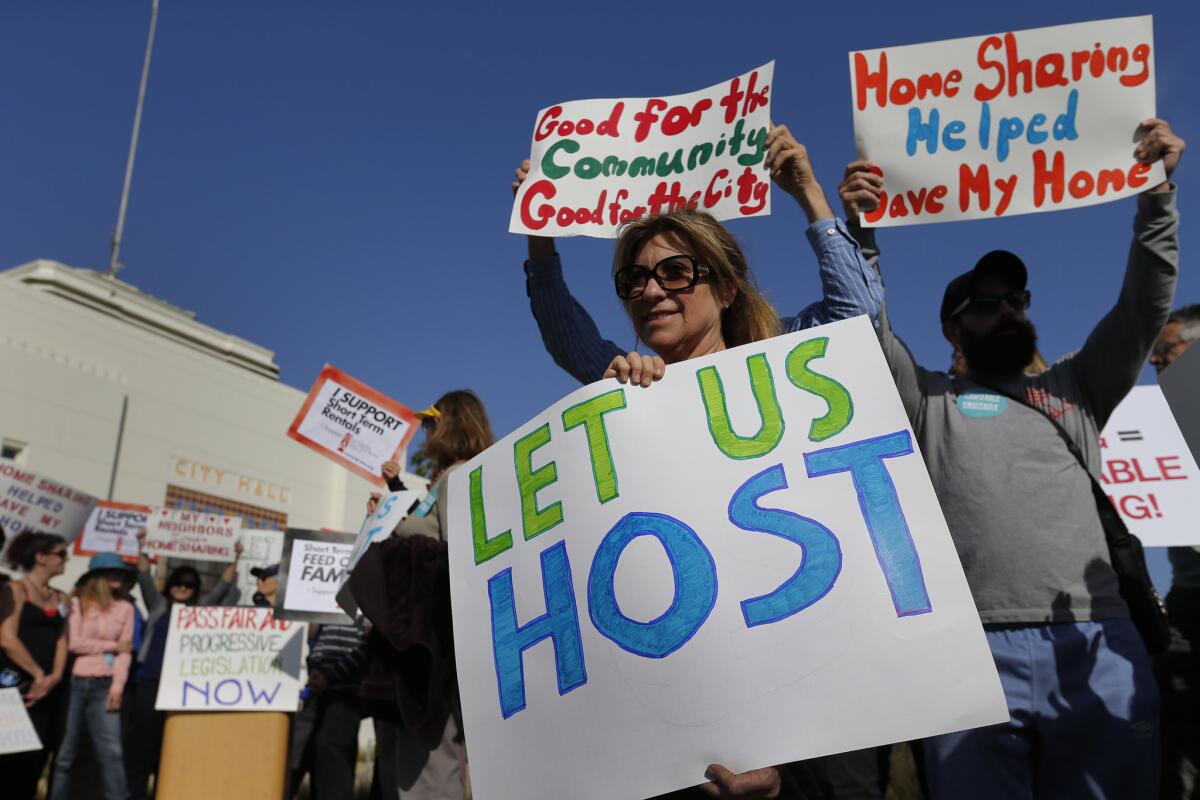Q&A: How new Santa Monica law affects rentals, Airbnb

Airbnb supporters rally outside the Santa Monica City Hall on Tuesday.
- Share via
Santa Monica’s City Council passed one of the most restrictive laws in the nation on short-term rentals Tuesday night. Or, more accurately, the council promised to enforce laws that are already on the books, but are largely ignored.
Here’s a quick rundown of what happened, and why:
What does the new law do? It explicitly bans vacation rentals – rentals of 30 days or less where the primary occupant of the home or apartment is not present – while legalizing and taxing “home-sharing” – i.e. renting a couch, spare room or backyard cottage. Home-sharers must obtain a city business license and pay Santa Monica’s 14% transient occupancy tax.
What does that mean? It means an estimated 1,400 of the 1,700 short-term rental units listed on three big websites – Airbnb, VRBO and Homeaway – in Santa Monica will now be prohibited. But it also means people who rent space in their homes can do so legally.
How does the city plan to enforce this? Good question. Santa Monica plans to hire more code enforcement officers with new tax revenue generated by taxes from home-sharers. And they promise “proactive enforcement.” But it’s unclear how they’ll police this law on a day-to-day basis.
Why is this happening now? As vacation rentals are booming thanks to the spread of easy-to-use online platforms such as Airbnb, they’re getting increasing pushback from the hotel industry and from housing advocates who say landlords are taking units off the rental market to rent day-to-day to tourists. In Santa Monica, those groups have advocated loudly for the tough new rules.
Is it happening elsewhere? Santa Monica’s are the strongest short-term regulations yet in Southern California, though West Hollywood and Los Angeles are studying measures of their own. Other cities such as San Francisco and Portland, Ore., are experimenting with rules as well, and there’s a bill moving in the California state Senate that could ease regulation by requiring hosting platforms to share user data with cities.
When does the new law take effect? The law in Santa Monica goes into effect June 15.
Keep an eye on housing and real estate in Southern California. Follow me on Twitter at @bytimlogan
More to Read
Inside the business of entertainment
The Wide Shot brings you news, analysis and insights on everything from streaming wars to production — and what it all means for the future.
You may occasionally receive promotional content from the Los Angeles Times.











